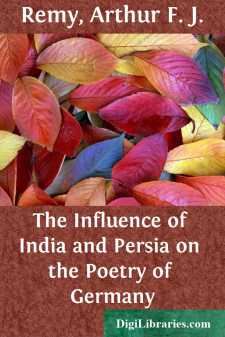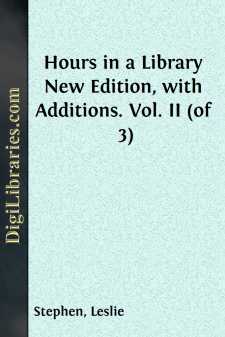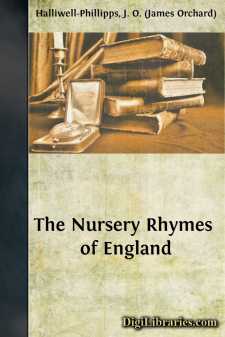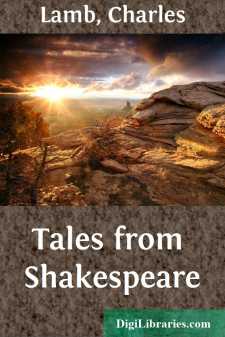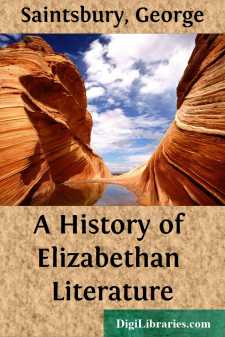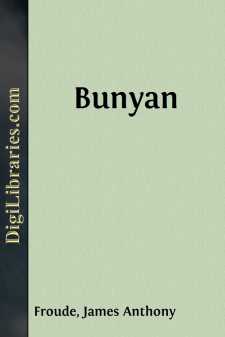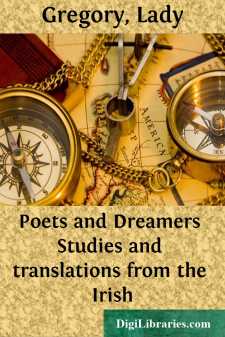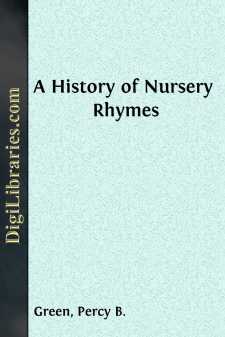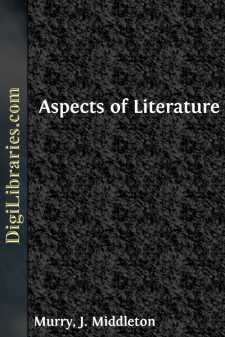Literary Criticism
- American 18
- Ancient and Classical 3
- Asian 1
- Australian & Oceanian 1
- Books & Reading 8
- Caribbean & Latin American 2
- Drama 2
- English, Irish, Scottish, Welsh 49
- European 7
- General 37
- Horror 1
- Humor 2
- Jewish 2
- Medieval 2
- Middle Eastern 3
- Poetry 7
- Renaissance 6
- Russian & Former Soviet Union 1
- Shakespeare 27
Literary Criticism Books
Sort by:
CHAPTER I. INTRODUCTION. Information of Mediæval Europe Concerning India and Persia—Travellers—India and Persia in Mediæval German Poetry. The knowledge which mediæval Europe had of India and Persia was mostly indirect, and, as might be expected, deficient both in correctness and extent, resting, as it did, on the statements of classical and patristic writers, on hearsay and on oral...
more...
by:
Leslie Stephen
A book appeared not long ago of which it was the professed object to give to the modern generation of lazy readers the pith of Boswell's immortal biography. I shall, for sufficient reasons, refrain from discussing the merits of the performance. One remark, indeed, may be made in passing. The circle of readers to whom such a book is welcome must, of necessity, be limited. To the true lovers of...
more...
I. LD King Cole Was a merry old soul, And a merry old soul was he; He called for his pipe, And he called for his bowl, And he called for his fiddlers three. Every fiddler, he had a fiddle, And a very fine fiddle had he; Twee tweedle dee, tweedle dee, went the fiddlers. Oh, there's none so rare, As can compare With King Cole and his fiddlers three! [The traditional Nursery Rhymes of England...
more...
by:
Charles Lamb
There was a certain island in the sea, the only inhabitants of which were an old man, whose name was Prospero, and his daughter Miranda, a very beautiful young lady. She came to this island so young, that she had no memory of having seen any other human face than her father's. They lived in a cave or cell, made out of a rock; it was divided into several apartments, one of which Prospero called his...
more...
by:
Jesse Johnson
INTRODUCTORY The Shakespearean Sonnets are not a single or connected work like an ordinary play or poem. Their composition apparently extended over a considerable time, which may be fairly estimated as not less than four years. Read literally they seem to portray thoughts, modes or experiences fairly assignable to such a period. Though variable and sometimes light and airy in their movement, the...
more...
As was explained in the Note to the Preface of the previous editions and impressions of this book, after the first, hardly one of them appeared without careful revision, and the insertion of a more or less considerable number of additions and corrections. I found, indeed, few errors of a kind that need have seemed serious except to Momus or Zoilus. But in the enormous number of statements of fact which...
more...
EARLY LIFE. 'I was of a low and inconsiderable generation, my father's house being of that rank that is meanest and most despised of all families in the land.' 'I never went to school, to Aristotle or Plato, but was brought up in my father's house in a very mean condition, among a company of poor countrymen.' 'Nevertheless, I bless God that by this door He brought me...
more...
by:
Lady Gregory
RAFTERY I. One winter afternoon as I sat by the fire in a ward of Gort Workhouse, I listened to two old women arguing about the merits of two rival poets they had seen and heard in their childhood. One old woman, who was from Kilchreest, said: 'Raftery hadn't a stim of sight; and he travelled the whole nation; and he was the best poet that ever was, and the best fiddler. It was always at my...
more...
by:
Percy B. Green
CHAPTER I. "The scene was savage, but the scene was new." Scientists tell us many marvellous tales, none the less true because marvellous, about the prehistoric past. Like the owl in the preface, they are not discouraged because the starting-point is beyond reach; and we, like the cat, should try to awaken our interest when evidences are presented to us that on first hearing sound like the...
more...
The Function of Criticism It is curious and interesting to find our younger men of letters actively concerned with the present condition of literary criticism. This is a novel preoccupation for them and one which is, we believe, symptomatic of a general hesitancy and expectation. In the world of letters everything is a little up in the air, volatile and uncrystallised. It is a world of rejections and...
more...


